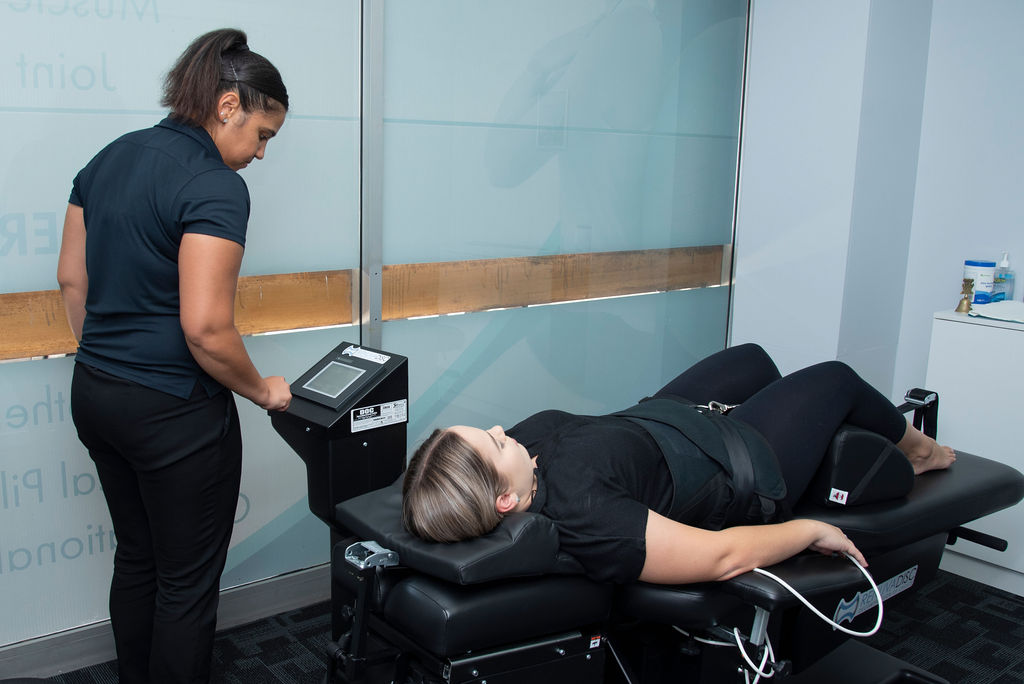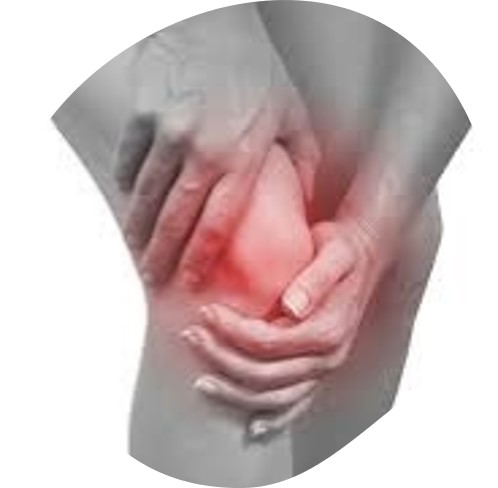

What is knee pain?
Knee pain is discomfort or soreness in the knee joint. It can be caused by a variety of factors, such as injury, degenerative conditions, and overuse. Knee pain can range from mild to severe and can be acute (short-term) or chronic (long-term). Depending on the underlying cause, knee pain can be accompanied by other symptoms such as swelling, stiffness, weakness, and difficulty walking or bearing weight on the affected knee.
Some common causes of knee pain include:
- Injuries: Knee pain can be caused by acute injuries such as sprains, strains, and fractures.
- Osteoarthritis: Knee pain can be caused by degeneration of the cartilage in the knee joint, which can lead to osteoarthritis.
- Rheumatoid arthritis: is a chronic inflammatory disorder that can affect the joints, including the knee joint.
- Bursitis and tendinitis: Overuse and repetitive stress can cause inflammation of the bursa (small fluid-filled sacs) or tendons in the knee, leading to bursitis or tendinitis.
- Torn cartilage or ligaments: Cartilage or ligament injuries such as tears or ruptures, can also cause knee pain.
- Gout: Gout is a type of arthritis caused by the buildup of uric acid crystals in the joint.
It’s important to see a doctor if you have knee pain, as they can help determine the underlying cause and develop an appropriate treatment plan.
Common symptoms of Knee Pain
Common symptoms of knee pain include:
- Pain or discomfort in the knee joint
- Stiffness or difficulty moving the knee
- Swelling or redness around the knee
- Warmth or tenderness to the touch
- Weakness or instability in the knee
- Creaking or popping sounds in the knee
- Reduced range of motion
- Difficulty walking, climbing stairs or bearing weight on the affected knee
- In some cases, knee pain may be accompanied by fever or other symptoms, which would suggest an infection, gout, rheumatoid arthritis or other underlying condition.
Symptoms can vary depending on the underlying cause of the knee pain, and the severity of the pain can range from mild to severe. It’s important to see a doctor if you have knee pain, as they can help determine the underlying cause and develop an appropriate treatment plan.
Causes of Knee Pain
There are many potential causes of knee pain, and the specific cause can vary depending on the individual. Here are some common causes of knee pain:
- Injury: Knee pain can be caused by acute injuries, such as sprains, strains, and fractures. These injuries can occur due to a direct blow, overuse, or sudden twisting or bending of the knee.
- Osteoarthritis: Knee pain can be caused by the degeneration of the cartilage in the knee joint, which can lead to osteoarthritis. This condition is more common in older adults, and can cause pain, stiffness, and difficulty moving the knee.
- Rheumatoid arthritis: is a chronic inflammatory disorder that can affect the joints, including the knee joint.
- Bursitis and tendinitis: Overuse and repetitive stress can cause inflammation of the bursa (small fluid-filled sacs) or tendons in the knee, leading to bursitis or tendinitis.
- Torn cartilage or ligaments: Cartilage or ligament injuries such as tears or ruptures, can also cause knee pain.
- Gout: Gout is a type of arthritis caused by the buildup of uric acid crystals in the joint.
- Patellar tendinitis: is an overuse injury causing pain in the front of the knee, around the kneecap area.
- Chondromalacia patellae: is a condition of the knee characterized by softening and degeneration of the cartilage under the kneecap.
- Patellofemoral pain syndrome: is a condition characterized by pain in the front of the knee and around the kneecap.
- Meniscal tear: the cartilage in the knee can also be damaged by a tear.
It’s important to see a doctor if you have knee pain, as they can help determine the underlying cause and develop an appropriate treatment plan.
How is Knee Pain assessed by a Physiotherapist?
A physiotherapist can perform a thorough assessment to determine the cause of your knee pain and develop an appropriate treatment plan. The assessment typically includes:
- Patient history: The physiotherapist will take a detailed history of your symptoms, including when your knee pain started, how often it occurs, and what makes it worse or better. They will also ask about any other relevant information, such as your medical history, medications you are taking, and any previous treatments you have tried.
- Physical examination: The physiotherapist will perform a physical examination to check for any abnormalities or problems that could be causing your knee pain. They will evaluate your posture, gait, range of motion in your knee, and the strength and tone of the muscles that support your knee. They will also look for any tenderness or pain in these areas, or any other areas that may be contributing to your knee pain. They may also check the range of motion and stability of the knee, as well as the neurovascular status of the lower limb.
- Special Tests: Depending on the signs and symptoms, physiotherapist may conduct special tests to find out the specific cause of knee pain. Eg: McMurray’s test, Apley’s test, Lachman’s test for knee ligament injuries, Thessaly test for Meniscal tear, Patellar grind test for Patellofemoral pain.
- Imaging: The physiotherapist may refer you to have an imaging such as X-ray or MRI to confirm or rule out any specific diagnosis.
Based on the findings of the assessment, the physiotherapist can then develop a treatment plan that may include a combination of manual therapy, exercises, education on posture and ergonomics and also advise on lifestyle changes that can help to reduce the frequency and intensity of your knee pain. The physiotherapist will also work closely with other healthcare professionals, such as doctors and surgeons, to ensure an effective and efficient management of your condition.
Treatment for Knee Pain
The treatment for knee pain will depend on the underlying cause and the severity of the pain. Here are some common treatment options for knee pain:
- Medications: Over-the-counter pain relievers, such as ibuprofen and acetaminophen, can help to reduce the pain and discomfort of knee pain. Your doctor may also prescribe other medications, such as corticosteroids or disease-modifying drugs, to help manage your symptoms.
- Physical therapy: Physiotherapy can help to improve strength, flexibility, and range of motion in the knee, which can help to alleviate knee pain and reduce the risk of further injury. Techniques like soft tissue mobilization, joint mobilization, and dry needling are used to reduce pain. Exercises and stretching are used to improve strength, flexibility, balance and also coordination.
- Surgery: In some cases, surgery may be necessary to treat knee pain. For example, if there is a severe ligament tear or a severe cartilage injury, surgery may be required to repair or replace the damaged tissue.
- Bracing or assistive devices: Depending on the underlying cause, knee brace or crutches may be recommended to help support and stabilize the knee, reducing pain and improving mobility.
- Lifestyle changes: Making certain lifestyle changes, such as maintaining a healthy weight, eating a healthy diet, and getting regular exercise, can help to reduce the frequency and intensity of knee pain. Avoiding triggers like overuse, or not warming up before physical activity, can also be helpful in managing knee pain.
It’s important to work with a healthcare provider to determine the appropriate treatment plan for you, as not all treatments will be effective for every individual or every type of knee pain.
It’s also essential to address the patient’s expectations, provide education on the prognosis of the injury and the management plan to be followed. Regular follow-ups and progress monitoring are important to adjust the treatment accordingly and also to prevent recurrence of the symptoms.
Dangers if left untreated
If knee pain is left untreated, it can have a number of negative effects on a person’s overall health and well-being. Some of the potential dangers of untreated knee pain include:
- Chronic knee pain: If knee pain is not treated, it can become chronic, which means it occurs more often and is more severe. Chronic knee pain can greatly affect a person’s quality of life and make it difficult for them to work, socialize, and perform other daily activities.
- Reduced mobility and functionality: If knee pain is not treated, it can lead to stiffness, weakness and difficulty in moving the knee which can make it challenging to perform daily activities such as climbing stairs or walking.
- Development of secondary conditions: Untreated knee pain can lead to the development of other conditions, such as muscle weakness or instability in the knee, which in turn can increase the risk of falls and further injuries.
- Increased risk of injury: Knee pain can affect a person’s ability to think and react quickly, increasing the risk of accidents and injuries.
- Development of other conditions: knee pain can also be a symptom of underlying conditions like osteoarthritis, rheumatoid arthritis, gout, or infections. If left untreated, these conditions can progress and become more severe.
- Dependence on painkillers: If pain is not managed, individuals may become dependent on painkillers which can lead to medication overuse headaches and also have negative impact on overall health.
It’s important to seek treatment if you have knee pain, as a healthcare provider can help determine the underlying cause and develop an appropriate treatment plan to manage your symptoms and prevent complications.
Find your nearest clinic
With 18 clinics nationwide and many more on the way, there's bound to be one near you
Discover our locations